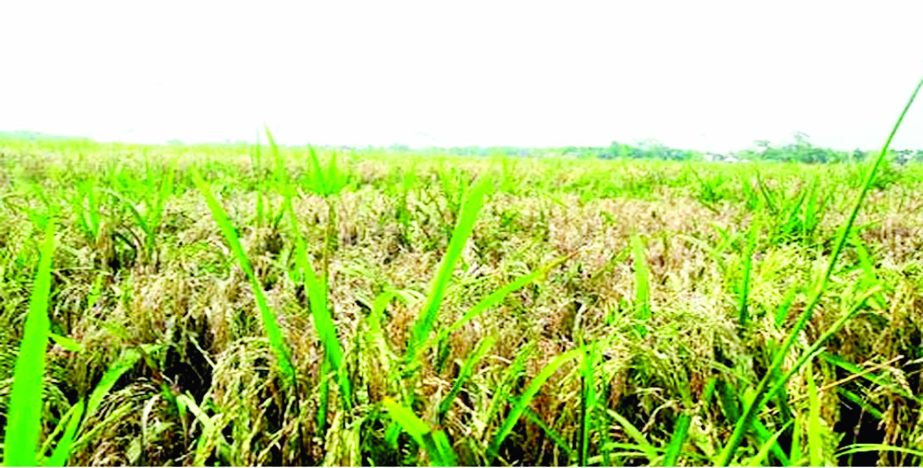
Our Correspondent :
Paddy blast in different fields of Ishwardi upazila has been affected by rough weather. Farmers are fearing a drop in production in the current Boro season due to the chewed paddy. According to the Agriculture Office, the outbreak of the disease was due to the use of high levels of nitrogen fertilizers and sudden decrease in air humidity.
The farmer cultivated paddy with a dream. And only after 15-20 days the paddy should be cut and taken home. In the hostile weather, the paddy has dried up and the farmer’s dream has been shattered.
Everything was going well. Looking at the field, the mind and soul of the farmer was getting absorbed. On the morning of April 10, the farmers went to the field and saw that they had been devastated by the ‘bad wind’ and the blast disease. After the disaster, blast disease has appeared in the paddy fields of different rural areas. The sheaf of rice has turned into cheetah. Julhas Uddin, a farmer in Aminpara area, said the loss of paddy in hot weather had never happened before.
Upazila Agriculture Officer Krishibid Abdul Latif said boro paddy was planted in 2,520 hectares of land in the upazila this year. Unfortunately the temperature suddenly crossed 35 degrees and unfortunately the wind blew during the opening of ‘Lemaplia’. As a result, about 15-20 percent of the total boro paddy land in Ishwardi has been lost.
Farmers have been advised to keep water in the field at all times for the remaining paddy and spray 10 gms of MOP and Hiovit with 10 liters of water per bigha. Meanwhile, paddy land in Ishwardi is also being affected by blast disease.
The agriculture official said that it was expected that the level of boro cultivation in Ishwardi would not be met this time.

